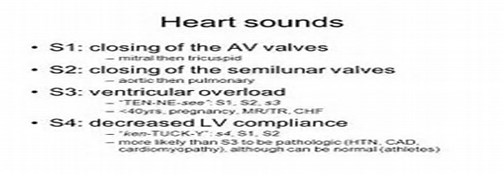The parent of a child born with a myelomeningocele asks the nurse, "What did I do to deserve this?" Which response is most helpful?
"You didn't do anything wrong."
"Is there any particular reason why you think this is your fault?"
"This must be a very difficult time for you."
"With surgery, your baby should have a full recovery."
The Correct Answer is C
The correct answer is Choice C: “This must be a very difficult time for you.”
Choice A rationale: Telling the parent “You didn’t do anything wrong” might seem comforting, but it doesn’t address the parent’s feelings of guilt or responsibility. It’s important to remember that myelomeningocele is a birth defect that occurs when the spine and spinal cord do not develop completely1. It’s often not known why this happens, but it can be due to a combination of genetic and environmental factors2. Therefore, it’s not something the parent did or didn’t do.
Choice B rationale: Asking “Is there any particular reason why you think this is your fault?” could potentially lead to a constructive conversation. However, it might also make the parent feel defensive or as if they need to justify their feelings. It’s crucial to approach this situation with empathy and understanding, acknowledging the parent’s feelings without making them feel judged.
Choice C rationale: Saying “This must be a very difficult time for you” is the most helpful response because it acknowledges the parent’s feelings and offers empathy. It doesn’t place blame or make assumptions. Instead, it opens up a space for the parent to express their feelings and concerns.
Choice D rationale: While it’s true that surgery can help manage the condition1, saying “With surgery, your baby should have a full recovery” might be misleading. Myelomeningocele is the most severe form of spina bifida and can cause moderate to severe disabilities, such as muscle weakness, loss of bladder or bowel control, and/or paralysis2. Each case is unique, and while some children may have less severe symptoms, others may require lifelong management. It’s important to provide accurate and realistic information.
Remember, it’s essential to approach these conversations with empathy and understanding. Parents dealing with a diagnosis of myelomeningocele are likely experiencing a range of emotions, and they need support and accurate information.
Nursing Test Bank
Naxlex Comprehensive Predictor Exams
Related Questions
Correct Answer is A
Explanation
An S3 heart sound can be a normal finding during pregnancy due to increased blood volume and changes in cardiac output. It is known as a physiological S3 and is considered a benign finding in the absence of other concerning symptoms or signs.
In this case, there is no immediate need for intervention or concern regarding the S3 heart sound. It is not necessary to prepare the client for an echocardiogram or limit the client's fluids based solely on the presence of an S3 heart sound in the absence of other significant symptoms or complications.

Correct Answer is D
Explanation
Keeping the child's nails trimmed short helps minimize the risk of further skin damage and infection resulting from scratching. It reduces the likelihood of breaking the skin and causing bleeding. This preventive measure can help protect the child's skin and promote healing. It is important to combine nail trimming with other appropriate interventions for managing eczema, such as moisturizing the skin, avoiding irritants, and following the healthcare provider's recommendations for treatment.
Whether you are a student looking to ace your exams or a practicing nurse seeking to enhance your expertise , our nursing education contents will empower you with the confidence and competence to make a difference in the lives of patients and become a respected leader in the healthcare field.
Visit Naxlex, invest in your future and unlock endless possibilities with our unparalleled nursing education contents today
Report Wrong Answer on the Current Question
Do you disagree with the answer? If yes, what is your expected answer? Explain.
Kindly be descriptive with the issue you are facing.
